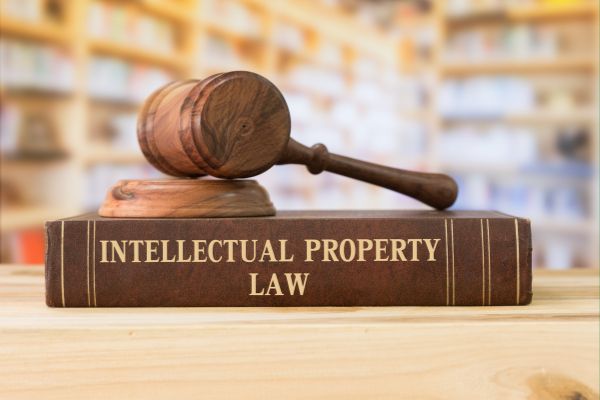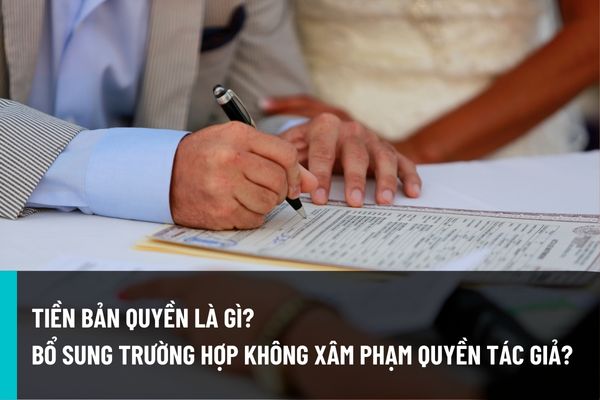What is money copyright in Vietnam? Additional exceptions for non-authority classification from 01/01/2023?
Additional exceptions do not infringe copyright in Vietnam?
According to Article 7 of the Law on Intellectual Property Amended in 2022, the exceptions do not infringe copyright in Vietnam as follows:
- Cases of using published works that do not require permission, do not have to pay royalties, but require information about the author's name and the origin and origin of the work, including:
+ Self-copy a copy for scientific research, personal study and not for commercial purposes. This provision does not apply in the case of copying by means of a copying device;
+ Reasonable copying of part of the work by copying equipment for scientific research, personal study and not for commercial purposes;
+ Reasonable use of works for illustration in lectures, publications, performances, sound recordings, video recordings, broadcasts for teaching purposes. This use may include making available on an internal computer network provided that technical measures are taken to ensure that only learners and instructors in the session have access to this work;
+ Using works in official activities of state agencies;
+ Reasonably cite the work without misleading the author to comment, introduce or illustrate in his work; for newspaper writing, use in periodicals, broadcasts, documentaries;
+ Use the work in library activities for non-commercial purposes, including copying the work stored in the library for preservation, provided that this copy is marked as archival copy and limited objects of access in accordance with the law on libraries and archives; reasonably copy part of a work by means of a copying device for another person to serve research and study; copy or transmit a work held for inter-library use over a computer network, provided that the number of readers at one time does not exceed the number of copies of the work held by the aforementioned libraries hold, except with the permission of the right holder and not where the work has been made available on the market in digital form;
+ Performance of theatrical, musical, dance and other art performances in cultural activities, non-commercial propaganda activities;
+ Photographing and broadcasting works of fine art, architecture, photography or applied art displayed in public places to introduce images of such works, not for commercial purposes;
+ Importing copies of other people's works for personal, non-commercial use;
+ Reproduction by republishing in newspapers, periodicals, broadcasting or other forms of communication to the public a lecture, speech, or other speech presented to the public to the extent appropriate to the law. news information purposes, except where the author claims to hold the copyright;
+ Taking pictures, recording, recording and broadcasting events for the purpose of news reporting, including using works heard or seen in that event;
+ People with visual impairments, people with disabilities who cannot read print and other disabled people who cannot access works to read in the normal way (hereinafter referred to as disabled people), nurturers, caregivers, etc. care for people with disabilities, organizations that meet the conditions prescribed by the Government to use works as prescribed in Article 25a of this Law.
- The use of the work specified in Clause 1 of this Article must not conflict with the normal exploitation of the work and unreasonably cause damage to the legitimate interests of the author or copyright owner. .
- The copying specified in Clause 1 of this Article does not apply to architectural works, works of art or computer programs; the job of collecting, anthology of works

What is money copyright in Vietnam? Additional exceptions for non-authority classification from 01/01/2023? (Pictures from the internet)
What are the use cases of published works that do not require permission, royalties or remuneration according to current regulations?
According to Article 25 of the Law on Intellectual Property 2005 (amended 2009, 2019) stipulates as follows:
"Article 25. Uses of published works without asking for permission or paying royalties or remuneration
1. The use cases of published works without asking for permission, without paying royalties and remunerations include:
a) Self-reproducing one copy for the purpose of personal scientific research or teaching;
b) Reasonably cite the work without misleading the author for commenting or illustrating in his work;
c) Quoting works without falsifying the author's intention to write newspapers, use in periodical publications, in radio and television programs, documentaries;
d) Quoting works for teaching in schools without falsifying the author's intention, without commercial purposes;
dd) Copying works for archiving in libraries for research purposes;
e) Performing theatrical works, other types of art performances in cultural activities, propaganda and promotion without collecting money in any form;
g) Recording, recording live performances for news reporting or for teaching;
h) Taking pictures and broadcasting visual, architectural, photographic and applied art works displayed in public places in order to introduce images of such works;
i) Translating works into Braille or other languages for the visually impaired;
k) Importing copies of other people's works for private use.
2. Organizations and individuals that use the works specified in Clause 1 of this Article must not affect the normal exploitation of the works, or prejudice the rights of the authors and copyright holders; must provide information on the author's name and the origin and origin of the work.
3. The provisions at Points a and dd Clause 1 of this Article do not apply to architectural works, visual works and computer programs."
What is royalties?
According to Clause 1, Article 1 of the Law on Intellectual Property Amended in 2022, it provides:
- Royalties are payments for the creation or transfer of copyrights and related rights in works, performances, phonograms, video recordings, broadcasts, including royalties, remuneration.
Thus, the revised Law on Intellectual Property in 2022 adds exceptions for non-infringement of copyright in the Intellectual Property Law.
The revised Law on Intellectual Property of 2022 takes effect from January 1, 2023.
LawNet
